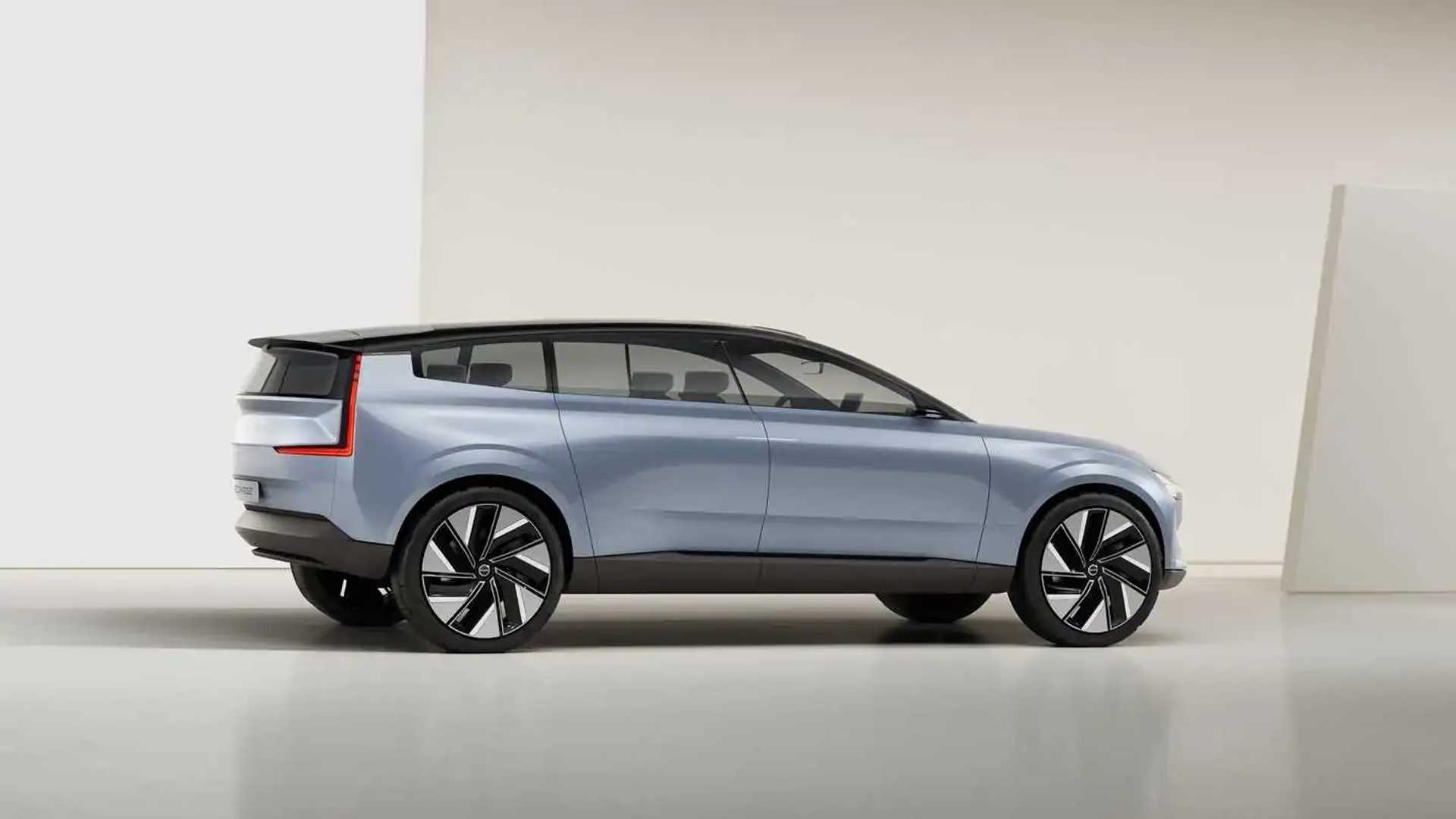Technology
Volvo EX60 Set to Revolutionize Electric Vehicle Battery Technology

Volvo is poised to enhance its electric vehicle lineup significantly with the introduction of the EX60, a mid-size electric SUV scheduled for release in 2024. This model will showcase cutting-edge battery technology, positioning Volvo as a strong competitor in the global electric vehicle market.
During an interview with InsideEVs at the company’s manufacturing facility in Ridgeville, South Carolina, Anders Bell, Volvo’s Chief Technology Officer, revealed that the EX60 will offer battery options featuring two distinct chemistries. Although he did not disclose the specific battery types, Bell indicated that lithium-iron phosphate (LFP) batteries are “absolutely” being considered for the EX60, which will be built on the next-generation SPA3 platform.
Volvo’s primary battery suppliers are CATL, based in China, and LG Energy Solution from South Korea. CATL produces both LFP and traditional nickel-manganese-cobalt (NMC) batteries. In contrast, LGES specializes in high-nickel cells. The current Volvo EX30 offers two battery configurations in Europe: a 51-kilowatt-hour LFP option and a 69-kWh NMC variant, with only the latter available in the U.S. It is likely that Volvo will adopt a similar strategy for the EX60.
Innovative Battery Design and Performance
The introduction of prismatic cells marks a significant shift in Volvo’s battery technology. “We have standardized a form factor of cells, large prismatic, which will then allow us to be cell omnivores as much as possible,” Bell explained. This design enables the company to utilize various battery chemistries effectively. Prismatic cells are gaining traction in the West, with companies like Volkswagen planning to incorporate them into their affordable electric vehicles starting next year. Additionally, General Motors will employ large-format prismatic batteries in its full-size SUVs and trucks beginning in 2028.
Bell described prismatic cells as “like a VHS cassette, but slightly bigger.” Their design offers advantages such as cost-effectiveness, reduced weight, and enhanced body stiffness. The EX60 will also implement a cell-to-body approach, where the battery is integrated structurally into the SPA3 platform, allowing for greater energy density and efficiency.
The EX60 will also feature substantial technological upgrades, including Nvidia’s Drive Thor computer, capable of executing 1,000 trillion operations per second. The vehicle will incorporate the third generation of Volvo’s drive units, which boast an efficiency rate of 93%. These enhancements were detailed during Volvo’s Capital Markets Day in Sweden last year.
Market Position and Competitiveness
Manufacturing of the EX60 will take place at Volvo’s main plant in Gothenburg, Sweden, with sales expected to commence in 2024. The EX60 is anticipated to compete directly with established electric vehicles such as the Tesla Model Y, BMW iX3, and the new electric Mercedes GLC. Given its advanced features and technology, it is positioned to be one of Volvo’s most critical electric vehicles to date.
As Volvo continues to refine its strategy for electric vehicles, the EX60 represents a pivotal step in the company’s commitment to sustainability and innovation in the automotive industry.
-

 Science1 month ago
Science1 month agoNostradamus’ 2026 Predictions: Star Death and Dark Events Loom
-

 Technology2 months ago
Technology2 months agoOpenAI to Implement Age Verification for ChatGPT by December 2025
-

 Technology7 months ago
Technology7 months agoDiscover the Top 10 Calorie Counting Apps of 2025
-

 Health5 months ago
Health5 months agoBella Hadid Shares Health Update After Treatment for Lyme Disease
-

 Health5 months ago
Health5 months agoAnalysts Project Stronger Growth for Apple’s iPhone 17 Lineup
-

 Technology5 months ago
Technology5 months agoElectric Moto Influencer Surronster Arrested in Tijuana
-

 Education5 months ago
Education5 months agoHarvard Secures Court Victory Over Federal Funding Cuts
-

 Health5 months ago
Health5 months agoErin Bates Shares Recovery Update Following Sepsis Complications
-

 Technology6 months ago
Technology6 months agoDiscover How to Reverse Image Search Using ChatGPT Effortlessly
-

 Technology7 months ago
Technology7 months agoMeta Initiates $60B AI Data Center Expansion, Starting in Ohio
-

 Science4 months ago
Science4 months agoStarship V3 Set for 2026 Launch After Successful Final Test of Version 2
-

 Technology7 months ago
Technology7 months agoRecovering a Suspended TikTok Account: A Step-by-Step Guide





















